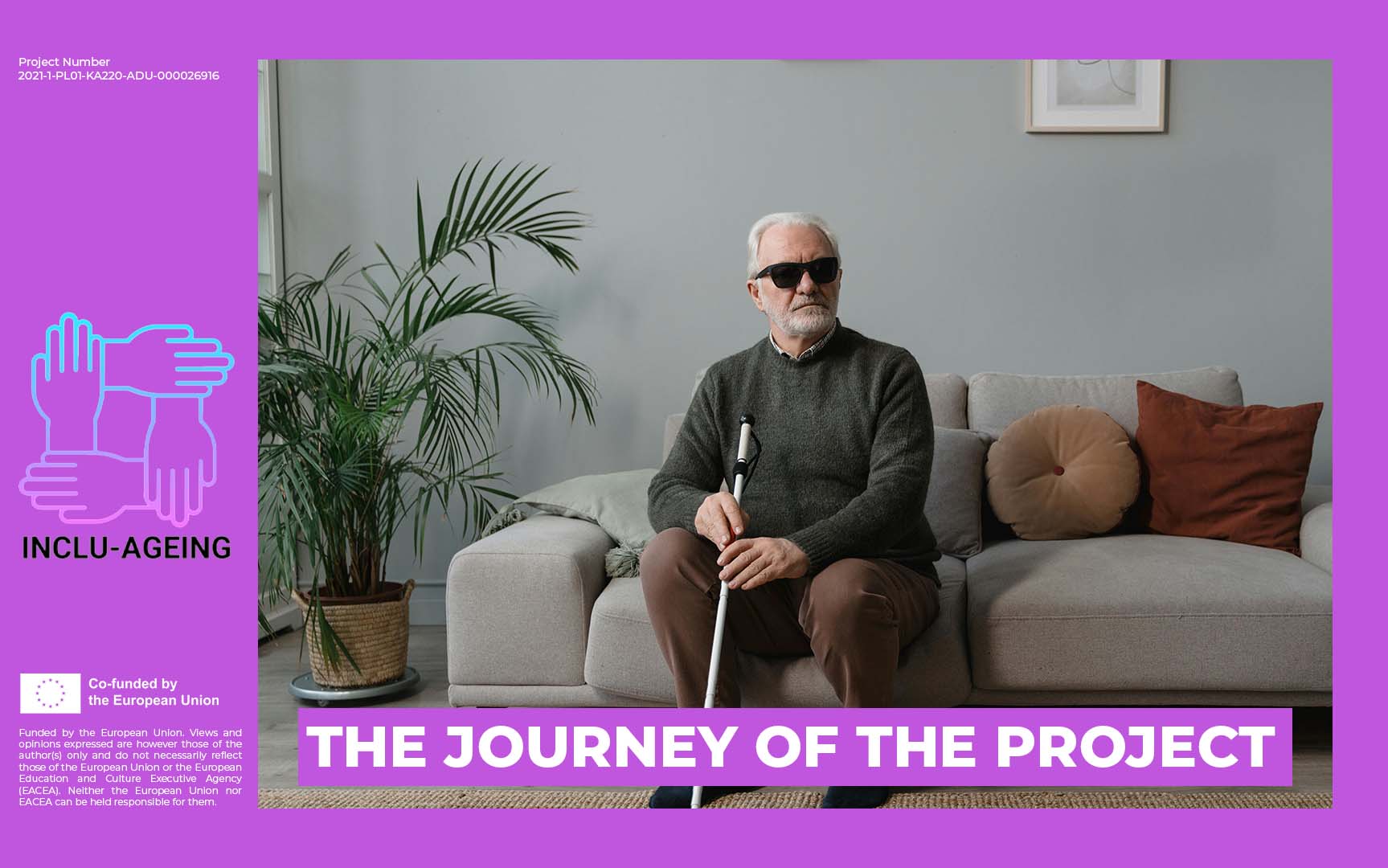On 7th April 2022, the Consortium of the KA2 Erasmus+ project “Inclu-ageing: Training of family members and guardians for inclusion of ageing adults with disabilities” commenced its journey, which will culminate on 31.03.24 and followed the mission to develop non-formal education materials aimed at empowering ageing adults with disabilities, fostering their inclusion, and enhancing their participation in social life. This ambitious project, co-founded by the Erasmus+ programme, KA220-ADU – Cooperation partnerships in adult education, brought together a consortium of esteemed organizations across Europe, among which AIS (Austria), SAVEZ OSIT (Croatia), URI- SOČA (Slovenia), APS (Poland) and ESTIA (Greece), in addition to CEIPES (Italy).
The project’s objectives were comprehensive, ranging from developing training toolkits and educational videos for families to designing online resources and policy recommendations to address the challenges faced by ageing adults with disabilities and their caregivers. The target beneficiaries included adults with intellectual disabilities, their families, legal guardians, NGOs, and professionals working in the field.
The Consortium, comprising organizations with strong expertise in disability, inclusion, and special education, delineated specific roles to ensure the project’s success. CEIPES, among others, played a pivotal role, particularly focusing on quality assurance, web platform design, and the production of educational videos for families.
One significant outcome of the project was the development of a Toolkit on how to train parents and legal guardians of ageing adults with disabilities. This comprehensive training program covered various topics essential for caregivers, including cognitive and physical skills, social support networks, and physical health. By enhancing caregivers’ knowledge and skills, the project aimed to ensure that ageing adults with disabilities receive the support they need to thrive.
In addition to the toolkit, the Consortium worked on the creation of a Parental Education Guidebook, which underwent evaluation by expert advisory boards. The guidebook, along with other project deliverables, aimed to equip caregivers with the necessary strategies and support to provide the best possible care for ageing adults with disabilities.
The project also emphasized the importance of social inclusion for ageing adults with disabilities, addressing challenges and promoting social participation through educational videos. Furthermore, the Consortium identified associations and experts in the field to test and evaluate project deliverables, ensuring their relevance and effectiveness.
The impact of the Inclu-ageing project extends beyond geographical borders, with its resources and tools designed to benefit caregivers and ageing adults with disabilities across Europe, which also include the cross-cultural policy recommendation report with national and regional/local laws supporting adults with disabilities and their relatives/caregivers. By empowering caregivers with enhanced knowledge and skills, the project aims to make a lasting and positive impact on the lives of those they care for. This process is made concrete by the HUB, the learning platform which provides the deliverables under the form of digital training, including the toolkit, the guidebook, the educational videos and the policy recommendation report.
Look at the policy recommendation report poster here!
Discover the Inclu-ageing project’s journey of empowerment and inclusion! Follow the project on Facebook for updates, discussions, and inspiring stories, and don’t forget to visit website for resources supporting caregivers and promoting social inclusion for ageing adults with disabilities.
